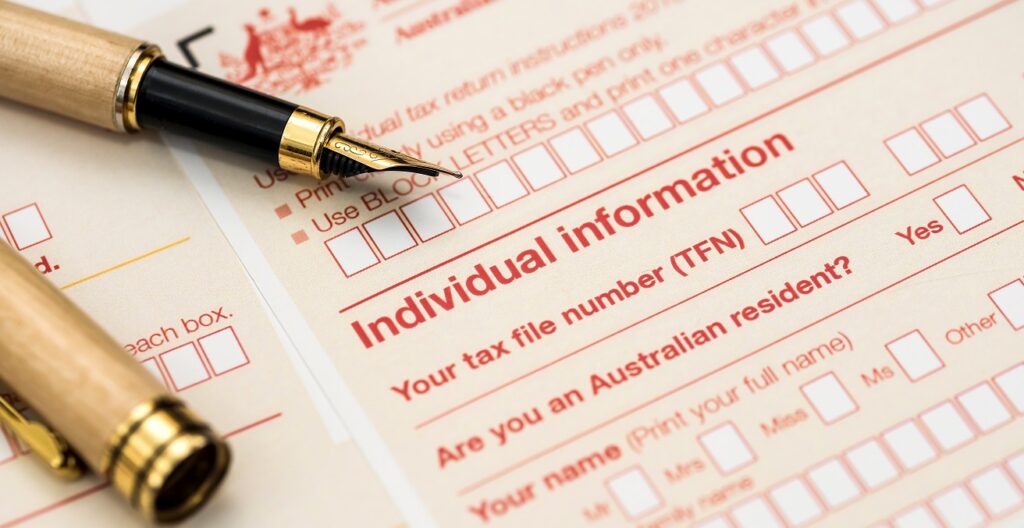Expat Taxes in Croatia part 1 – that will be the topic of today’s article.
Before introducing this article, if you are interested in our core services which are expat financial, insurance and mortgages, you can contact me here.
The best time to consider your financial situation is when you are moving to a new country.
Introduction
Expat tax in Croatia can be a bit of a headache to figure out. The main thing to remember is that you are taxed on your Croatian income, no matter where you are resident in the world. This means that if you earn money in Croatia, even if you’re living elsewhere, you’ll have to declare and pay taxes on it.
There are a few exceptions, though. If you’re earning less than €7,000 per year, you don’t have to pay taxes on it. And if you’re only in Croatia for a short period – less than 183 days in a calendar year – you also don’t have to pay taxes on your income.

But for the most part, if you’re living in Croatia and earning money here, you’ll have to pay taxes on it. The good news is that Croatian taxes are relatively low compared to other countries. And as an expat, you may be able to take advantage of some tax breaks and deductions available only to foreigners.
However, you’ve come to the right place if you’re looking to know more about expat taxes in Croatia. And remember, it’s always better to be safe than sorry – so make sure you take care of your taxes, even if it seems like a hassle. After all, it’s what we have to do to keep the government happy!
In this article, we will walk you through the concept of expat taxes in Croatia. Not only that, but you’ll know whether the country is suitable for a digital nomad, retirees, and many others, to mention a few. Also, we have compiled the ultimate guide to living in Croatia as an expat. Now, read further to get the details.
Benefits of Tax in Croatia

Tax in Croatia, which is payable by every citizen over the age of 18 years, may seem like a chore to some people. Some may associate it with being in prison and paying their way out. However, in reality, there are many benefits to paying taxes. Here are the reasons why paying tax in Croatia can benefit you.
In our humble opinion, there are a number of benefits to the Croatian tax system. Some people don’t welcome these benefits with open arms, but you should read them anyway!
1. You Have Access to Public Services
One might argue that, in theory, this is a benefit for all citizens, not just those who pay taxes in Croatia. Public services in Croatia are free, including higher education, health care, and financial aid. Yet, we think this benefit is worth mentioning because not just anyone can access these services. You have to prove that you’re a tax-paying citizen in order to get them.
2. You Deserve Some Respect from Everyone
As a developing country, Croatia is full of hardworking people trying to make an honest living. People who pay their taxes are among this group of hardworking citizens. By paying your taxes, you’re telling the government and everyone else that you’re doing your part to contribute to the country. This respect is something that all taxpayers can feel proud of.
3. You’re Eligible for Tax Breaks
In addition to public services, taxpayers in Croatia are also eligible for a number of tax breaks. This includes deductions on income tax, property tax, and even VAT. You can also apply for a number of special funds only available to taxpayers.
4. You’re helping to build the country
Croatia has a few infrastructure projects in the works, including roads and railways. Better infrastructure means better opportunities for companies in Croatia to expand their market overseas. However, all of this work requires money, so taxpayers are doing their part by paying taxes used to fund these projects.
5. You Have Access to Public Funds
At the end of the fiscal year, all taxpayers have access to public funds returned to the people. This includes a share of all taxes paid over a fiscal year. Depending on which fund you put your money in, you could be eligible for up to 50% return on your investment.
Overview of Expat Taxation in Croatia
Croatia is one of many European countries with relatively low tax rates. It has a flat tax rate for individual taxpayers at 15%, and corporate entities pay 18%. These are among the lowest rates in Europe. Croatia does not levy any taxes on worldwide income, which means that there is no requirement to file or submit Croatian tax returns if you are not living or earning income in Croatia.
This tax-free system makes it one of the few European countries where expatriates do not have to worry about filing Croatian taxes, provided that they are not employed by Croatian companies or based out of Croatia for any length of time. However, if you have assets in Cyprus, this might change your tax situation. Besides, if you are a Cyprus resident, your worldwide income is subject to taxes in Croatia.
This means that you will be required to file a Croatian tax return and submit it to the Croatian Tax Administration, regardless of whether you are living or earning income in Croatia. In addition, you will also be taxed on your worldwide assets, including those located in Croatia. This is a new rule introduced in 2013 and affects all Cyprus residents, expatriates, and locals.
The good news is that the tax rates are still very low, so the additional taxes you will pay on your worldwide income and assets will not be too burdensome. However, it is important to be aware of these tax rules and to file the required returns if you are a Cyprus resident with assets in Croatia.
Croatia Tax System In 2021

In Croatia, the tax system is based on a progressive tax scale. This means that the more money you earn, the higher your tax rate. In 2021, the highest tax rate is 40%, which is applied to income over HRK 500,000 (approx. EUR 67,000). There are also a number of allowances, which can be deducted from your total income before you have to pay tax.
In 2021, taxpayers are allowed to deduct as much as HRK 20,000 (approx. EUR 2,700) from their wage or pension if they have school-aged children. In the past few years, many Croatian citizens have reduced their tax haven thanks to a generous tax credit scheme. If you do not have much money and need help, it’s well worth checking if the scheme is still available.
In 2021, people with rents can deduct HRK 12,000 per year. Furthermore, they are also entitled to receive an additional tax deduction on the interest they pay on their mortgage. This deduction is capped at HRK 10,000 (approx. EUR 1,350). As you can see, the Croatian tax system is very generous when it comes to helping people with their finances.
Whether you are a parent with children in school or renting out a property, there are plenty of allowances and tax credits to help you reduce your total income. However, people need to remember that they can’t get a refund after paying their tax bills. Therefore, many people choose to pay themselves the money earned from being taxed before submitting their earnings to the government. This way, if you get a refund, you are actually getting money back from yourself!
The Croatian tax system is straightforward to understand. If you have any questions, be sure to speak to an accountant or tax specialist. They will help you get the most out of your taxes in 2021.


